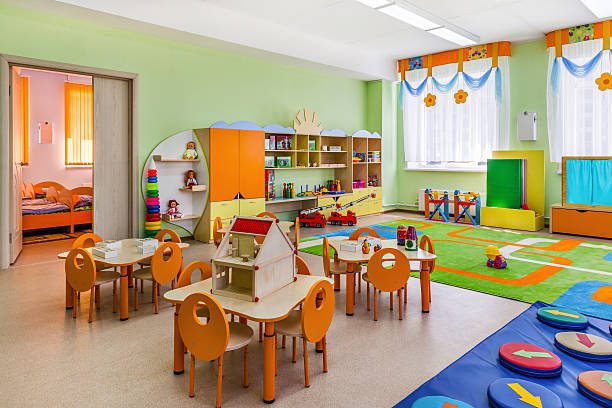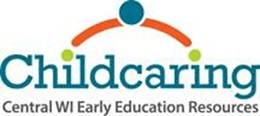
Photo Credit: iStock
Introduction: Why businesses should care about child care
For any organization operating in Central Wisconsin, the well-being of children, families and caregivers isn’t just a moral issue — it’s a business issue. When families have access to reliable, high-quality child-care and early-education supports, parents are more present, engaged, productive and less stressed. Local economies thrive when working parents don’t constantly worry about child-care gaps or unstable care arrangements. Enter Childcaring — a regional nonprofit dedicated to strengthening the child-care ecosystem in Central Wisconsin. Partnering with families, care-providers and employers, Childcaring supports quality early-childhood education and care, empowers providers through training and certification, and helps build a pipeline of sustainable child-care infrastructure.
For businesses, this means: investing in stable employee-families, enhancing recruitment & retention, reducing turnover and boosting community goodwill. In this article, we’ll explore the current state of affairs at the Wisconsin state level, highlight effective programs in our region, and outline how you can get involved — whether through donations, partnerships or investment in early-childhood infrastructure.
State-level context: What’s happening in Wisconsin
How will the state of Wisconsin support child care in this budget cycle?
Wisconsin Early Care and Education – Biennial Budget Information – 2025-27
The 2025-27 Biennial Budget invested $330 million in child care, including:
• Direct payments to child care providers
• Investments to make child care more affordable for families
Family Affordability
• Over $123 million to increase Wisconsin Shares subsidy rates
Direct Investments in Child Care Providers
Child Care Bridge Payments
• $110 million for direct payments to providers in the first year of the budget (July 2025-June 2026)
• These Child Care Bridge Payments will ensure continued support as the Child Care Counts program has ended
Get Kids Ready
2025 Wisconsin Act 15 provides an annual $66 million investment to Dept. of Children and Familes beginning in SFY27 to fund “Get Kids Ready,” a new community-based elementary school readiness initiative to support licensed or certified child care providers serving four-year-olds. The Get Kids Ready program will begin during the 2026-27 school year.
Enhanced Payments Pilot
A 2-year pilot program to increase per-child payments to licensed providers caring for infants and toddlers with a Wisconsin Shares authorization
• For children 0-18 months old: $200/month for full-time care
• For children 18-30 months old: $100/month for full-time care
• To be eligible, providers will need to participate in increased ratios for children 18-30 months old
Regulation Changes
Assistant Child Care Teachers
Sixteen-year-olds may serve as assistant teachers under the supervision of child care teachers in group child care programs.
Group Child Care Ratios Pilot
Group programs may begin to implement new pilot ratios of 1:7 for children 18-30 months now, if they meet other applicable administrative rules (e.g., space requirements, equipment and furnishings, licensed capacity, etc.).
Large Family Child Care
Family child care providers with sufficient staff and space will be able to serve up to 12 children.
Visit this webpage or scan the QR code below for the most up-to-date information: https://dcf.wisconsin.gov/childcare/biennialbudget/25-27

Emerging trends & business-relevant implications
· There is broad acknowledgement of a child-care access crisis: providers are operating on thin margins, many are understaffed, and waiting lists are common. The state’s Wisconsin Department of Children and Families (DCF) describes the sector as “at a breaking point.” Wisconsin DCF
· From the business side: when child-care options are limited or unstable, working parents may reduce hours, leave the workforce, or be less present. For employers, this translates to higher turnover, recruitment difficulties and productivity dips.
· For social responsibility and talent strategy, investing in child-care and family supports is increasingly seen as part of a holistic workforce-strategy: it bolsters community resilience, aligns with purpose, and impacts bottom-line metrics (e.g., absence, retention).
· State policies and subsidy programs are essential, but local implementation and care-ecosystem capacity are where businesses can make a measurable difference.
Examples of successful programs in Central Wisconsin
Let’s zoom into our region — Central Wisconsin — and highlight a few positive efforts where partnerships are already making strides.
1. Marathon County – FREE training and stipends
Funded by Marathon County ARPA, new child care teachers can receive FREE foundational training – required to work in a regulated program; and the program receives a $5,000 stipend for employee incentives and onboarding costs.
2. Wood County – Capacity Building Grants and Child Care Cooperative
Both projects are funded by Wood County ARPA. The Capacity Building Grant will offer two, $100,000 grants for group centers to increase regulated slots. Family child care providers can apply for up to $10,000 to become licensed. Childcaring staff are facilitating frequent opportunities through the Child Care Cooperative for centers to communicate, collaborate, and build partnerships.
3. Adopt a Provider – Langlade and Lincoln Counties
Adopt A Provider was established by the Dream Up! Taskforce in Langlade and Lincoln Counties. Potential donors like businesses, civic groups, and community members can pick from a list of needed items provided by the child care programs. The specific items or monetary donations are facilitated by Childcaring.
4. Portage County EARLY CHILDHOOD SOCIAL EMOTIONAL PROJECT
A new project funded by the Otto Bremer Trust Foundation through Portage County United Way, Childcaring will offer FREE Pyramid Model Training with reflective coaching for child care providers to address the social – emotional needs of children by providing the skills to manage challenging behaviors and enhanced social emotional competence. This includes onsite consultation and a kit of classroom materials.
5. LENA Grow – South Wood County
Since fall of 2022, approximately 60 early childhood classrooms in central Wisconsin have participated in LENA Grow, helping to build the brains of over 500 children! LENA Grow is a professional development opportunity designed to help early childhood educators create equitable, robust language environments. This program is known to provide more positive teacher-child interactions which boosts social skills and kindergarten readiness AND increase teacher confidence with higher job satisfaction. With funding provided by the Legacy Foundation, zip codes in South Wood County are being prioritized for the next three years.
Visit the Childcaring website or call them to learn more about these examples or new opportunities to make a difference! www.childcaring.org or 1-800-628-8534

Creator: Ben DeFlorio Copyright: Benjamin DeFlorio
How your business can get involved or invest
As a local business leader, you have options to support child-care/early-education, which in turn supports your workforce and community. Here are actionable ideas:
1. Financial Donations or Sponsorships
· Consider making a tax-deductible gift to a local nonprofit such as Childcaring, supporting training or facility expansion.
· Sponsor a local child-care provider’s professional development or facility licensing fees (through grants or stipends).
· Fund employee family-support benefits (child-care subsidies, backup care stipends).
· Align donations with targeted outcomes: e.g., “help 10 new infant-care slots open in Marathon County,” “fund a provider stipend for quality upgrade.”
2. Partnering & In-Kind Support
· Offer your workplace as a site for child care expansion (if zone/permit allows) or collaborate with provider on before/after-school care for employee kids.
· Provide mentorship, volunteer time, or business-skills training to early-childhood providers (e.g., budgeting, marketing, HR).
· Create a child-care alliance: engage multiple local employers to pool support for local care-capacity growth.
3. Employee-Focused Benefits
· Introduce or enhance flexible work schedules, remote-work options, or “back-up childcare” benefits so that child-care disruptions don’t derail productivity. Learn more by attending: RUNNING OUT OF PEOPLE: Family Friendliness as a Workforce Strategy on Thursday, December 11, 2025.
· Promote awareness among employees about programs like Wisconsin Shares and Good Start Grants (child-care subsidy) so eligible families can take advantage.
· Offer employee-referral bonuses for child-care provider roles, helping build the workforce of care professionals.
4. Advocacy & Thought Leadership
· Use your voice: engage local chambers of commerce, workforce-development groups and policymakers to advance child-care infrastructure investment.
· Share data and testimonials: demonstrate how improved child-care correlates with lower turnover, better attendance and employee satisfaction.
· Adopt a long-term strategic lens: early-childhood investment is foundational for future workforce readiness.
· Become more involved by connecting with Childcaring, Inc., your local child care resource and referral (CCR&R) agency, and join a local coalition near you: www.childcaring.org
5. Measure & Communicate Return
· Track metrics: e.g., number of employee families served, reduction in unplanned absenteeism, improved retention.
· Tell your story: highlight your company’s role in community child-care solutions — this supports employer branding and community reputation.

Photo Credit: Unsplash
Final thoughts
For businesses in Central Wisconsin, supporting child-care and early-childhood systems isn’t a peripheral philanthropic activity — it’s a strategic imperative. By working with organizations like Childcaring, aligning with state and local programs, and investing time, expertise and resources, you help strengthen the workforce of today and tomorrow.
Article and Resources provided by Kelly Borchardt, Executive Director and Micki Krueger, Assistant Director, Childcaring, Inc.
